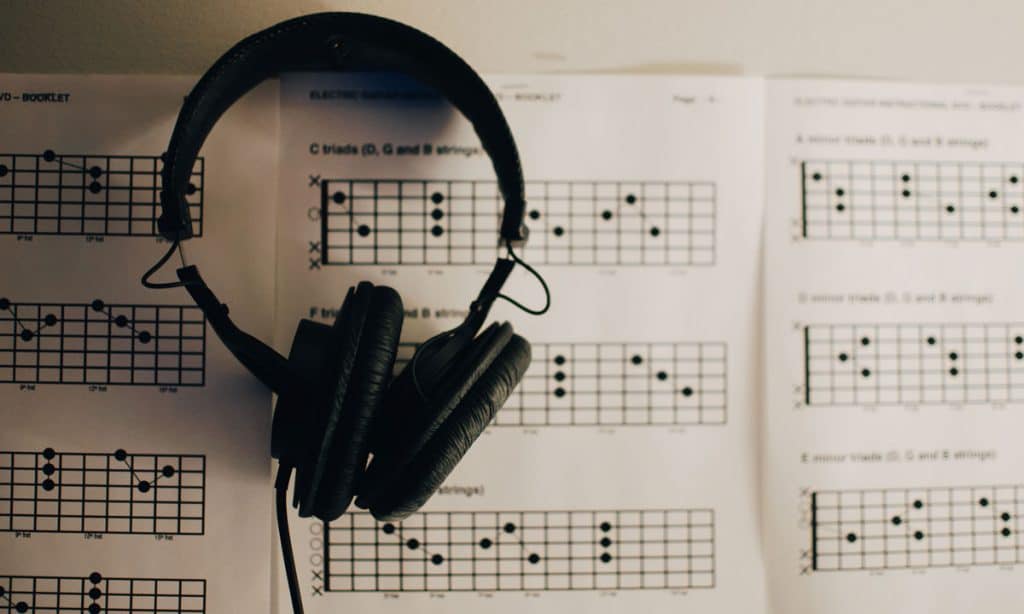
Music is a turn on like sex and drugs
An anthem of youth and counterculture was sex, drugs and rock’n’roll. It has been part of concerts, colleges and early after-school life since the ’60s. Deadheads, Blockheads and the Sex Pistols all rode the wave. Now science agrees that music is just as turned on as sex and marijuana.
Groundbreaking research from McGill University in Montreal now shows that the opioid system in the human brain is directly involved in music enjoyment.
“This is the first evidence that the brain’s own opioids are directly involved in music enjoyment,” says cognitive psychologist Daniel Levitin, lead author of the study.
RELATED: 4 DJs Share Their Favorite Cannabis Strains
While previous work by Levitin’s lab and others had used neuroimaging to map areas of the brain active during moments of musical pleasure, scientists could only conclude on the involvement of the opioid system.
“The results themselves were consistent with our hypotheses,” Levitin said. “But the anecdotes – the impressions our participants shared with us after the experiment – were fascinating. One said: “I know this is my favorite song but it doesn’t feel like it normally does.” Another said: “That sounds pretty but doesn’t do anything for me.”
Photo by Eric Nopanen via Unsplash
Although the neural basis of music perception has been extensively studied over the past 15 years, the study found that relatively little is known about the neurochemical processes underlying music enjoyment. Preliminary studies have shown that both playing and listening to music modulate levels of serotonin, adrenaline, dopamine, oxytocin and prolactin. Music can reliably evoke feelings of pleasure, and in fact music is consistently ranked among the ten things in life that bring joy, ahead of money, food and art.
RELATED: Most marijuana users smoke to relax while listening to rock music
Aside from the compelling results, the study also suggests that music therapy may be much more effective than previously thought. And music therapy is not a “new” form of treatment for improving mental health. It is one of many types of therapy.
According to the American Music Therapy Association:
“The idea of music as a healing influence that could influence health and behavior is at least as old as the writings of Aristotle and Plato. The 20th century discipline began after World War I and World War II, when community musicians of all kinds, both amateur and professional, went to veterans’ hospitals across the country to play for thousands of veterans suffering both physical and mental health from the wars had suffered emotional trauma.
 Photo by Kelly Sikkema via Unsplash
Photo by Kelly Sikkema via Unsplash
“Patients’ remarkable physical and emotional responses to music led doctors and nurses to ask hospitals to hire musicians. It quickly became apparent that hospital musicians needed some prior training before entering the facility, and so the demand for a college curriculum grew. The world’s first music therapy program, founded in 1944 at Michigan State University, celebrated its 50th anniversary in 1994. The American Music Therapy Association was founded in 1998 as a merger of the National Association for Music Therapy and the American Association for Music Therapy.”
RELATED: The Day Bob Dylan Made The Beatles Weed
The McGill University study proved to be “the most laborious, difficult and Sisyphean work our laboratory has undertaken in 20 years of research,” according to Levitin. “Any time you give prescription medications to students who don’t need them for health reasons, you need to be very careful to avoid potential negative effects.”
The universality of music and its ability to influence profound emotions suggest an evolutionary origin, and these recent findings “add to the growing body of evidence for the evolutionary biological substrates of music,” the researchers write.

Post a comment: